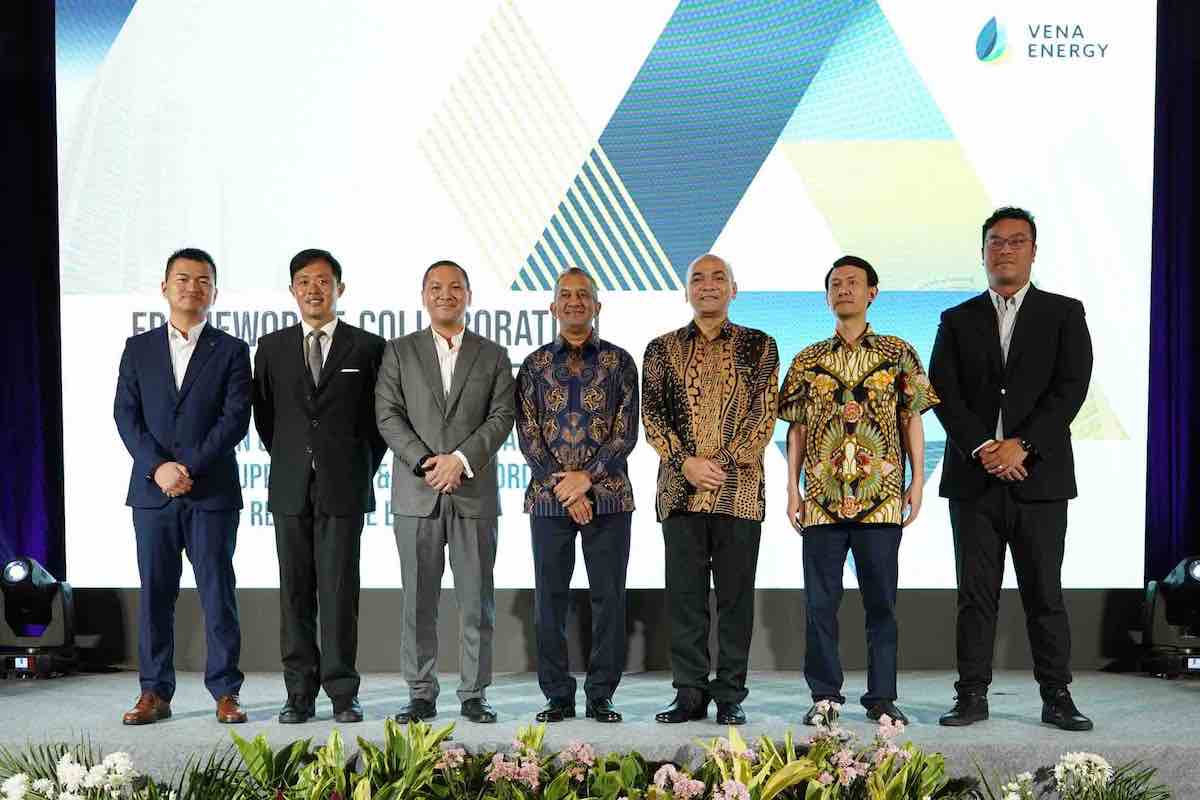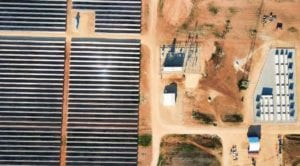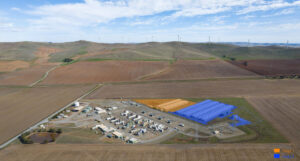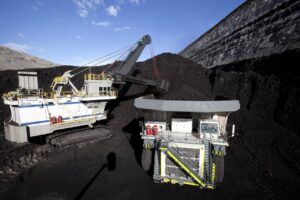The hard-fought plans of billionaire Mike Cannon-Brookes to use the huge Sun Cable project to export Northern Territory solar power to Singapore via a sub-sea cable, face tough new competition, following news of a major new deal led by Vena Energy and including oil giant Shell.
Singapore-based Vena said on Tuesday it has signed a “landmark framework agreement” with China solar giant Suntech and energy storage manufacturers Powin and Rept Battero to establish PV and battery production lines in Indonesia.
As well as bolstering Indonesia’s renewable energy supply chain, the deal aims to produce solar and battery components for Vena’s version of Sun Cable – a hybrid megaproject in the Riau Islands targeting 2GW of solar power capacity 8GWh storage.
Like Sun Cable, the Riau Islands megaproject also aims to supply cross-border renewable power to Singapore, in collaboration with Shell Eastern Trading – another deal that was firmed up in Jackarta on Tuesday alongside the supply chain collaboration.
Vena’s Riau project, which the company describes as under development, could potentially leave Sun Cable trying to find another customer for the electricity produced by the up to 20GW of solar, alongside 42GWh of battery storage, originally proposed for that project.
Already the huge Australian project has been set back this year after a disagreement over its strategy between two of Sun Cable’s biggest shareholders – Cannon-Brookes and fellow billionaire Andrew Forrest – landed the company in voluntary administration.
Quinbrook Investments has since teamed up with billionaire Mike Cannon-Brookes to reboot the potentially $30 billion project, starting with a first stage of solar and storage construction with a focus on the domestic market.
As RenewEconomy has reported, the new owners of Sun Cable have effectively split the project in two – with Quinbrook taking charge of the domestic component, using its expertise in large-scale solar to secure supplies, customers and co-investors.
Grok Investments, the Cannon-Brookes vehicle which also has a stake in Quinbrook, will focus on the potential of exporting solar power to Singapore via a sub-sea cable. If that part is successful, then the Sun Cable will potentially be built up to the scale originally proposed – 20GW and 42GWh.
Until then, Sun Cable will be built at a significantly smaller scale, and in stages, with the size limited to the potential of finding new customers and green industries to supply from the solar project in Elliott, and delivered via a proposed 800km transmission line.
The news of Vena’s latest deal and plans in Indonesia could see Sun Cable looking for new customers overseas, as well – or force another tactical change of plans.
For Vena, the deal with Suntech, Powin and Rept Battero promises to significantly strengthen the company’s foothold in the Asia Pacific renewables market.
Already in the region it has some 10GW of offshore wind projects planned, including an up to 2GW offshore wind farm in Australia’s first declared development zone off the coast of Gippsland in Victoria – the Blue Marlin project.
In Australia Vena operates the 97MW Tailem Bend solar farm in South Australia, the state’s first utility scale solar farm, and is currently building the 85MW second stage, and a 41MW, one hour battery.
It recently completed the Wandoan battery, the first big battery installation in Queensland, with a neighbouring solar farm that is nearly complete.
US-based Powin is supplying the hardware and software for the New South Wales Waratah “super battery,” one of the biggest in Australia, and the biggest “network” battery in the southern hemisphere.









